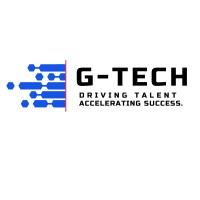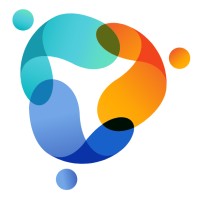

INFOMATIC
FinOps Dashboard Developer
⭐ - Featured Role | Apply direct with Data Freelance Hub
This role is for a FinOps Dashboard Developer on a contract basis, paying $54.47 - $60.00 per hour. Requires 3–5 years in data analytics, strong SQL skills, and experience with BI tools. Remote work with cloud cost analytics expertise preferred.
🌎 - Country
United States
💱 - Currency
$ USD
-
💰 - Day rate
480
-
🗓️ - Date
October 1, 2025
🕒 - Duration
Unknown
-
🏝️ - Location
Remote
-
📄 - Contract
Unknown
-
🔒 - Security
Unknown
-
📍 - Location detailed
Remote
-
🧠 - Skills detailed
#Spark (Apache Spark) #Tableau #Airflow #Licensing #GIT #SQL (Structured Query Language) #Data Modeling #Python #Monitoring #Visualization #Scala #Cloud #Anomaly Detection #Forecasting #Microsoft Power BI #Grafana #Data Accuracy #Compliance #BI (Business Intelligence) #AWS (Amazon Web Services) #Datasets #Azure #Data Engineering #Leadership #"ETL (Extract #Transform #Load)" #Redshift #Documentation #Scripting #Snowflake #BigQuery #GCP (Google Cloud Platform) #Metadata #Looker #Data Warehouse #dbt (data build tool)
Role description
Job Description – FinOps Dashboard Developer
We are looking for a FinOps Dashboard Developer to design, develop, and maintain dashboards that bring clarity to cloud cost, usage, optimization, and forecasting. This role acts as the connector between raw billing data, engineering, finance, and business stakeholders—turning complex information into clear, actionable insights.
Your work will enable visibility across teams, track FinOps KPIs, surface anomalies, support forecasting, and drive smarter cost vs. performance decisions. By delivering self-service and intuitive dashboards, you will play a key role in maturing the organization’s FinOps practice.
Responsibilities
Collect, clean, and enrich data from cloud billing, usage, licensing, and sustainability sources; integrate with financial and engineering datasets.
Build and maintain dashboards and reports tailored for different stakeholders (engineering, finance, leadership, product) to analyze spend, utilization, waste, forecasts, and anomalies.
Support tagging and metadata strategies to ensure accurate cost allocation and compliance.
Develop forecasts and variance reports, flag overspending, and highlight optimization opportunities (rightsizing, savings plans, idle resources).
Implement alerts, anomaly detection, and trend monitoring within dashboards.
Drive self-service capabilities so teams can easily analyze cost and usage data.
Partner with FinOps practitioners, engineers, finance, and procurement to align dashboards with business needs.
Ensure data accuracy, consistency, and reliability across sources (APIs, billing exports, usage reports).
Apply best practices for dashboard performance, scalability, latency, and documentation of metric definitions.
Stay current on FinOps standards (e.g., FOCUS data spec), cloud billing models, and sustainability reporting.
Required Skills & Qualifications
3–5 years of experience in data analytics, dashboard development, or BI, ideally within cloud cost analytics.
Hands-on with BI/visualization tools such as Power BI, Tableau, Looker, or Grafana.
Strong SQL and data modeling skills; ability to handle large datasets and ETL pipelines.
Familiarity with AWS, Azure, or GCP billing/usage APIs and tagging.
Solid understanding of cloud cost optimization concepts (e.g., savings plans, rightsizing, amortization, allocation).
Strong communication skills—able to explain insights to technical and non-technical audiences.
Problem-solving ability to turn vague requirements into clear dashboard deliverables.
Preferred Qualifications
Experience with data warehouses (BigQuery, Snowflake, Redshift) or near real-time pipelines (Airflow, dbt, Spark).
Exposure to cloud-native cost tools (AWS Cost Explorer, Azure Cost Management, GCP Billing).
FinOps Certified Practitioner or cloud cost optimization certification.
Experience embedding sustainability/carbon metrics into dashboards.
Background working in organizations practicing FinOps.
Key Metrics of Success
Adoption: Percentage of stakeholders actively using dashboards.
Transparency: Portion of spend covered by accurate tagging and allocation.
Forecast Accuracy: Variance between actual and projected spend.
Anomaly Detection: Timeliness and impact of cost anomalies flagged.
Time to Insight: Speed from data availability to dashboard updates.
Efficiency Gains: Reduction in ad hoc analysis time due to dashboards.
Cost Savings: Optimization opportunities identified and realized.
Typical Tools & Technologies
Cloud billing APIs (AWS, Azure, GCP)
Data warehouses/lakes (BigQuery, Snowflake, Redshift)
ETL tools (dbt, Airflow, custom pipelines)
Visualization tools (Power BI, Looker, Grafana, Tableau)
Git for versioning and collaboration
Scripting with Python, SQL, or PowerShell
Job Type: Contract
Pay: $54.47 - $60.00 per hour
Work Location: Remote
Job Description – FinOps Dashboard Developer
We are looking for a FinOps Dashboard Developer to design, develop, and maintain dashboards that bring clarity to cloud cost, usage, optimization, and forecasting. This role acts as the connector between raw billing data, engineering, finance, and business stakeholders—turning complex information into clear, actionable insights.
Your work will enable visibility across teams, track FinOps KPIs, surface anomalies, support forecasting, and drive smarter cost vs. performance decisions. By delivering self-service and intuitive dashboards, you will play a key role in maturing the organization’s FinOps practice.
Responsibilities
Collect, clean, and enrich data from cloud billing, usage, licensing, and sustainability sources; integrate with financial and engineering datasets.
Build and maintain dashboards and reports tailored for different stakeholders (engineering, finance, leadership, product) to analyze spend, utilization, waste, forecasts, and anomalies.
Support tagging and metadata strategies to ensure accurate cost allocation and compliance.
Develop forecasts and variance reports, flag overspending, and highlight optimization opportunities (rightsizing, savings plans, idle resources).
Implement alerts, anomaly detection, and trend monitoring within dashboards.
Drive self-service capabilities so teams can easily analyze cost and usage data.
Partner with FinOps practitioners, engineers, finance, and procurement to align dashboards with business needs.
Ensure data accuracy, consistency, and reliability across sources (APIs, billing exports, usage reports).
Apply best practices for dashboard performance, scalability, latency, and documentation of metric definitions.
Stay current on FinOps standards (e.g., FOCUS data spec), cloud billing models, and sustainability reporting.
Required Skills & Qualifications
3–5 years of experience in data analytics, dashboard development, or BI, ideally within cloud cost analytics.
Hands-on with BI/visualization tools such as Power BI, Tableau, Looker, or Grafana.
Strong SQL and data modeling skills; ability to handle large datasets and ETL pipelines.
Familiarity with AWS, Azure, or GCP billing/usage APIs and tagging.
Solid understanding of cloud cost optimization concepts (e.g., savings plans, rightsizing, amortization, allocation).
Strong communication skills—able to explain insights to technical and non-technical audiences.
Problem-solving ability to turn vague requirements into clear dashboard deliverables.
Preferred Qualifications
Experience with data warehouses (BigQuery, Snowflake, Redshift) or near real-time pipelines (Airflow, dbt, Spark).
Exposure to cloud-native cost tools (AWS Cost Explorer, Azure Cost Management, GCP Billing).
FinOps Certified Practitioner or cloud cost optimization certification.
Experience embedding sustainability/carbon metrics into dashboards.
Background working in organizations practicing FinOps.
Key Metrics of Success
Adoption: Percentage of stakeholders actively using dashboards.
Transparency: Portion of spend covered by accurate tagging and allocation.
Forecast Accuracy: Variance between actual and projected spend.
Anomaly Detection: Timeliness and impact of cost anomalies flagged.
Time to Insight: Speed from data availability to dashboard updates.
Efficiency Gains: Reduction in ad hoc analysis time due to dashboards.
Cost Savings: Optimization opportunities identified and realized.
Typical Tools & Technologies
Cloud billing APIs (AWS, Azure, GCP)
Data warehouses/lakes (BigQuery, Snowflake, Redshift)
ETL tools (dbt, Airflow, custom pipelines)
Visualization tools (Power BI, Looker, Grafana, Tableau)
Git for versioning and collaboration
Scripting with Python, SQL, or PowerShell
Job Type: Contract
Pay: $54.47 - $60.00 per hour
Work Location: Remote






